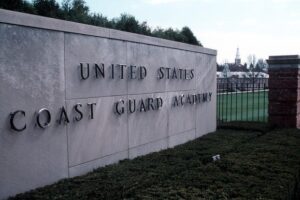In a high-profile legal case that could have significant implications for military contracting and ethics, former Navy Adm. Robert Burke faces accusations of corruption. However, recent developments suggest the case might take a turn, as the defense seeks to discredit evidence from a crucial witness.
The controversy revolves around allegations that Burke, along with Charlie Kim and Meghan Messenger of Next Jump, engaged in bribery by steering Navy contracts to the company while he was a four-star admiral. This company later employed him with a substantial salary after his retirement.
Crucial Witness Under Scrutiny
The prosecution’s case is heavily reliant on statements from a woman identified in court documents as “Witness 1,” who was involved romantically with Burke. Following the end of their relationship, she reported the alleged bribery to authorities. However, her credibility is now under intense scrutiny due to her history of dishonesty in previous court proceedings, a fact that was not disclosed when search warrants were obtained.
Defense lawyers argue that this omission is critical, claiming the entire case leans on the testimony of a witness with a tainted past. Burke’s attorney stated, “This entire case rests on the credibility of Witness 1, a known liar and perjurer.”
Legal Hurdles for the Prosecution
The challenges don’t end with Witness 1’s credibility. The legal framework for proving bribery demands substantial evidence of an “official act” in exchange for favors. This standard was clarified in the 2016 Supreme Court ruling on former Virginia Gov. Bob McDonnell’s case, which limited what could be considered a bribe.
Burke’s defense argues that the alleged acts do not meet this standard, noting that the contractual decisions were beyond Burke’s individual authority. Legal experts like Todd Huntley highlight the difficulty of proving bribery without clear, direct exchanges of favors.
Examining Military Ethics
The case against Burke also sheds light on broader ethical issues within military leadership, where close ties between top officials and defense contractors often blur legal boundaries. The practice of retired military leaders joining defense boards, as seen with Adm. John Aquilino joining Lockheed Martin, is common but controversial.
Huntley explains that while outright bribery is clear, the gray areas of influence and informal agreements complicate legal interpretations. “Proving where that crosses the line is very difficult,” he noted, emphasizing the ongoing challenge for legal systems to address such complex situations.










